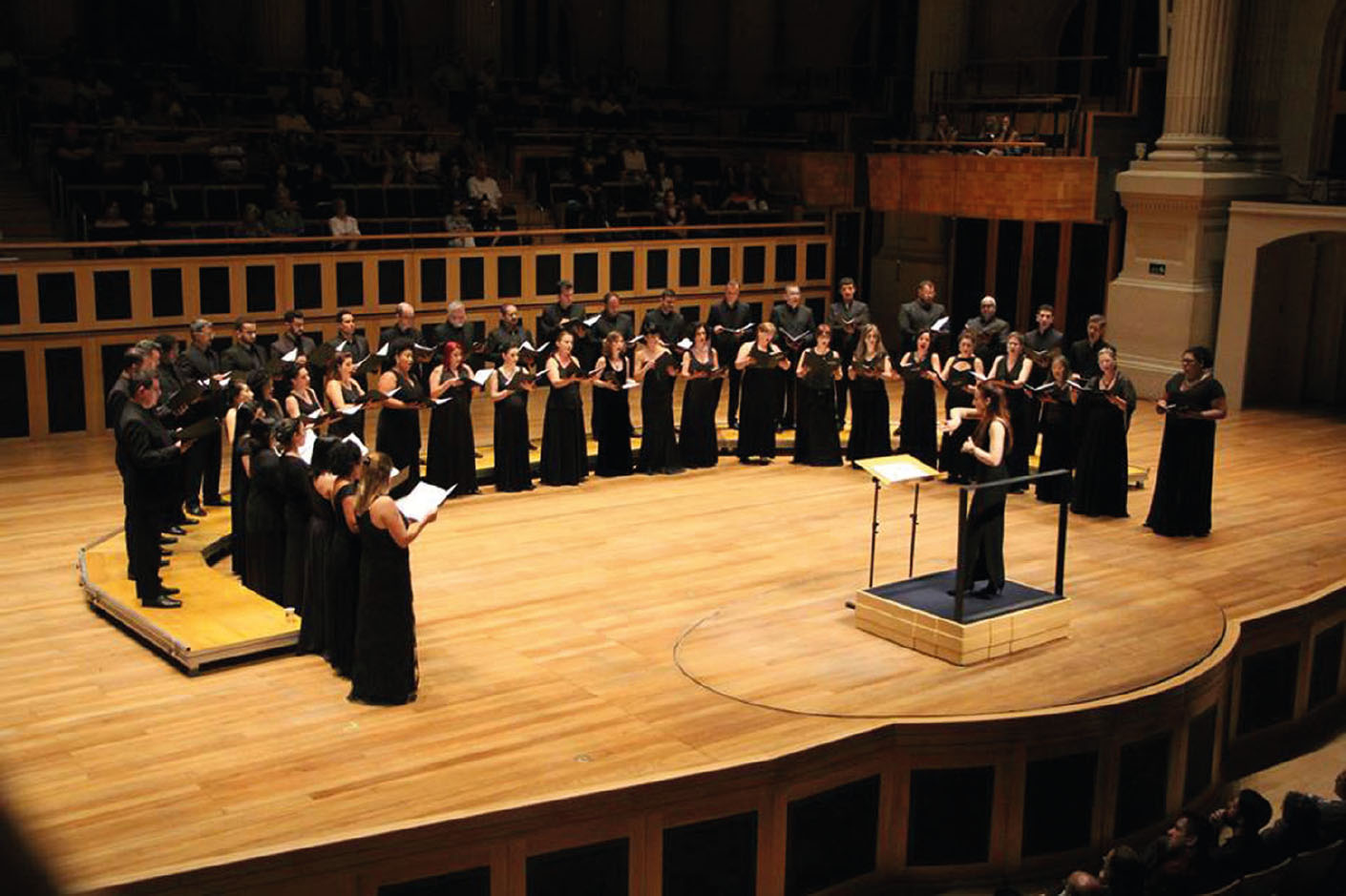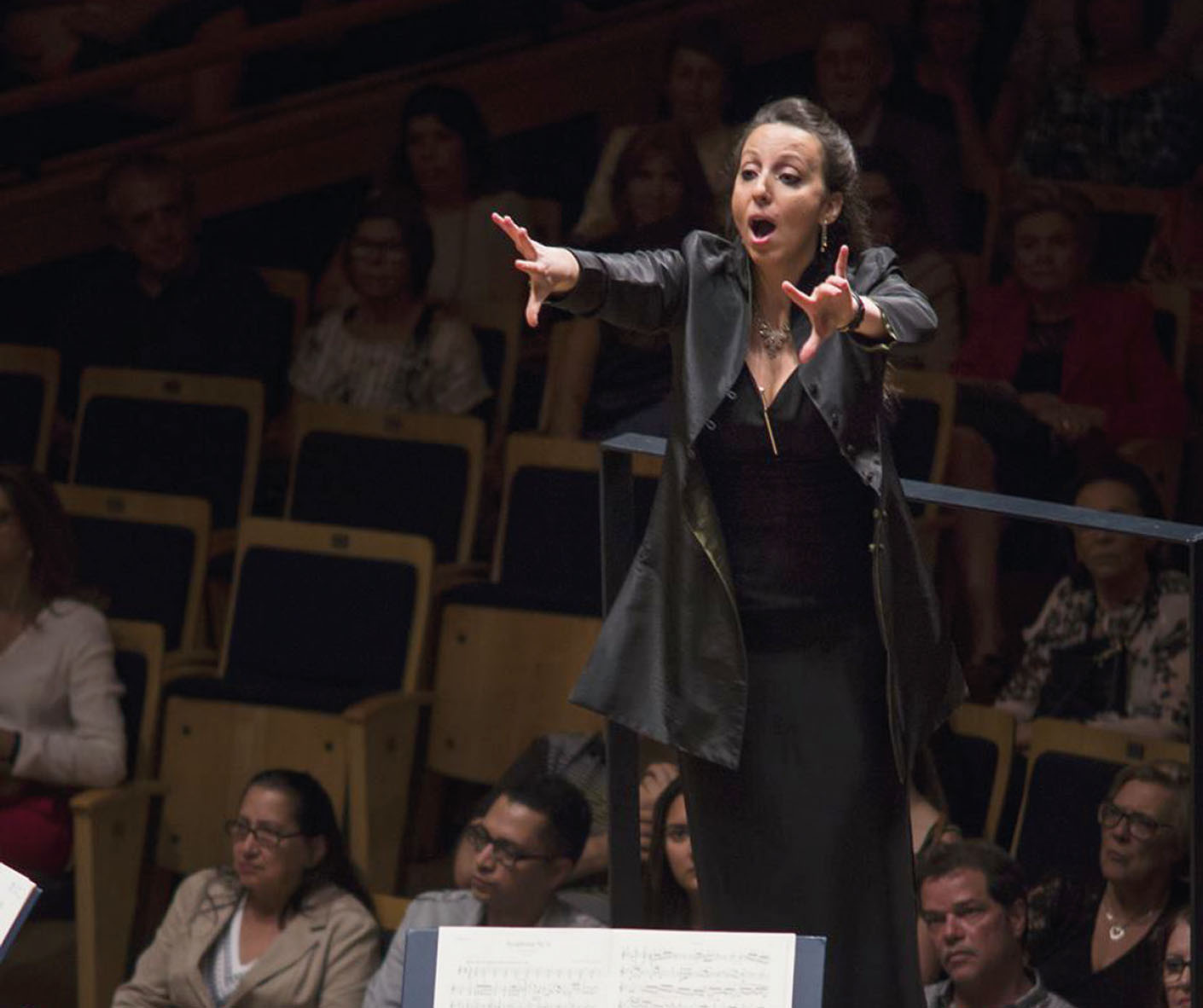
‘Through singing I was free – free to connect with other enthusiastic young people – and at the same time I discovered that discipline is the base of freedom itself.’ This profound reflection is made by Valentina Peleggi, who in 2017 was appointed principal conductor of the Orquestra Sinfônica do Estado de São Paulo (OSESP) choir in Brazil.
Founded in 1994 as the Symphonic Choir of the State of São Paulo, and renamed in 2001, the OSESP Choir performs both the great choral-symphonic canon with the Orchestra, and also a cappella works. It has a particular leaning towards music from the 20th and 21st centuries, and a mission to promote the music of Brazilian composers – indeed, its first CD release, in 2009, was Canções do Brasil (‘Songs of Brazil’), and in 2013 it recorded a CD of choral works by Aylton Escobar.
The appointment of Italian conductor Valentina Peleggi was an exciting move, on both sides. Peleggi had just finished her master's in orchestral conducting at London's Royal Academy of Music when she arrived in São Paulo as assistant conductor of the OSESP symphony orchestra in 2016. Things moved swiftly: ‘The chief conductor of the OSESP Choir had left just before I arrived,’ she explains, ‘so I was asked to rehearse some programmes with the choir right away. It went very well, and I was invited to prepare other programmes during the year, both a cappella and symphonic. It was love at first sight, and the following year I accepted with great enthusiasm to be their chief conductor.’ At the same time, Peleggi became resident conductor of the Orchestra, professor at the Conducting Academy, and is also now music director of the São Pedro Opera.
Though having initially accepted an orchestral brief, taking on the choir was not an unnatural move for Peleggi: ‘Before my studies in London, I had much more experience conducting choirs rather than orchestras – they've always been my home. I've sung in choirs since I was a kid, I took vocal technique classes and had vocal coach training. I was absolutely fascinated by the choir, its world, the magic of creating different universes of sound combined with the joy of making music with friends. And thanks to the choir I discovered my greatest passion, conducting. When you conduct, you breathe for everybody and with everybody. You suggest a vision and provide the tools for reaching it – you help the choir to listen and to shape the sound based on listening, finding the colours and sonance, blending the timbres in order to really build and develop the most intimate essence of a group.’ When she was 22, she had the opportunity of putting this into practice, as conductor and music director of the University Choir of Florence, a post she held for ten ‘beautiful, unforgettable years.’
Peleggi's own passion for choral singing is reflected in the OSESP Choir's many outreach programmes and youth choirs, involving children aged from 7 to 19, that run parallel to the Orchestra's mission to give young people exposure to classical music through activities such as educational concerts and open rehearsals, and playing musical games. The OSESP Children's Choir and Youth Choir are open to all, regardless of musical background; regular classes and rehearsals lead to performances alongside the Orchestra in large works of choral repertoire as well as their own concerts. Complementing OSESP's outreach work is the OSESP Music Academy, a centre for the specialisation of instrumentalists from all over Brazil, which offers students the opportunity to study alongside members of the Orchestra. In 2013, the Academy established the Academic Choir, with the aim of providing professional training for young singers. The project offers experience in choral practice, promotes knowledge of the symphonic repertoire for choirs, and provides instruction in vocal techniques, prosody and diction. Peleggi is deeply committed to developing choral opportunities for people across the country, including in rural areas. As such, she's excited about a new innovative programme, the OSESP Centre of Choral Culture, which organises activities for amateur and semi-professional choirs in Brazil, through masterclasses, classes over the internet, meetings, festivals, come-and-sing public performances, and so on.
 © OSESP
© OSESP © OSESP
© OSESP
In just a few short years, Peleggi's star has risen and shone as she has won prizes and awards alongside critical acclaim. The next phase brings her back to London in September – this time, to take up a two-year Mackerras Fellowship at the English National Opera. But through all of these accolades, she retains ‘a special place in [her] heart for choirs.’ Indeed, her insightful comments as to their benefit read like a choral manifesto: ‘Singing is so connected with your soul and your emotions. To give breath to your own voice and to shape it together with someone else's has a special magic. The choir is a space where we can discover the beauty not only of ourselves, but the beauty of a team. The choir is a space where everybody is essential and beautiful, where we listen as much as we sing, and have mutual respect. We learn that everything is a path, that a team works hard together towards a common goal, that in order to be really one, the secret is to be able to listen, to be open, to support. These are the fundamental rules not only for a good choir, but for any good society. Especially in our times, when social media makes us self-aggrandising but also lonely, I find it even more important to rediscover the value of silence and of listening, to build something meaningful as musicians and as human beings.’








